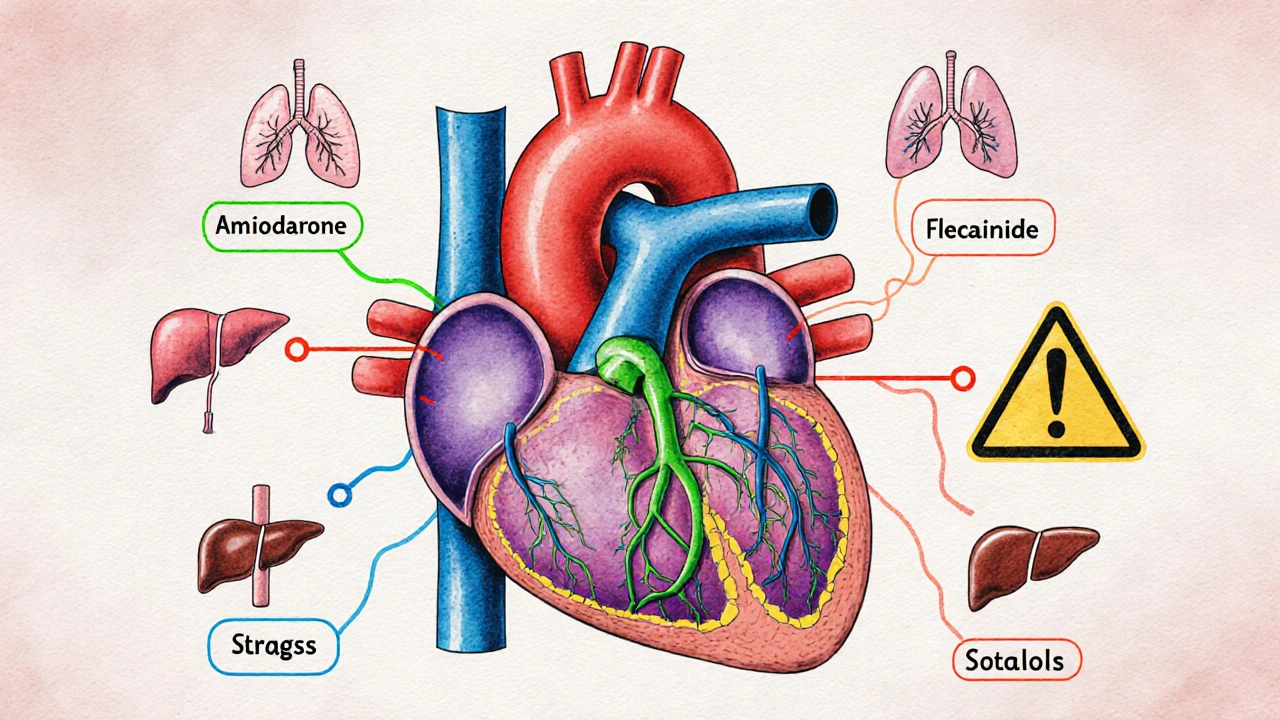Amiodarone Side Effects: What You Need to Know Before Taking It
When your heart rhythm is out of control, amiodarone, a potent antiarrhythmic drug used to treat life-threatening irregular heartbeats. Also known as Cordarone, it's one of the few medications that can reset a dangerously fast or chaotic heartbeat. But this power comes with a price. Unlike most heart meds, amiodarone stays in your body for weeks—even months—after you stop taking it. That’s why its side effects don’t always show up right away, and why so many people are caught off guard.
One of the biggest risks is thyroid problems, a common and often overlooked reaction to amiodarone. It can cause either an overactive thyroid (hyperthyroidism) or an underactive one (hypothyroidism), with symptoms like unexplained weight loss, fatigue, tremors, or feeling unusually cold. Another serious concern is lung damage, a rare but potentially fatal condition called pulmonary toxicity. If you start coughing without reason, feel short of breath during light activity, or get winded faster than usual, don’t wait—get checked. Amiodarone can also hurt your liver, cause vision changes, turn your skin blue-gray in sun-exposed areas, and interact badly with other drugs like statins or blood thinners.
People on amiodarone need regular blood tests, chest X-rays, and thyroid checks. It’s not a drug you take casually. Doctors usually reserve it for patients who haven’t responded to safer options, or those with severe arrhythmias where the risk of not treating is higher than the risk of the medicine. If you’ve been on it for more than a few months, ask your doctor if you’re still in need of it—or if there’s a safer alternative now. The goal isn’t just to keep your heart beating, but to keep you healthy while doing it.
Below, you’ll find real patient experiences and clinical insights on how amiodarone side effects show up, how they’re managed, and what to watch for if you or someone you care about is taking this medication. These aren’t just warnings—they’re practical steps to help you stay in control.

- 11 Comments
Amiodarone is highly effective for dangerous heart rhythms but carries serious long-term risks. Learn how it compares to other antiarrhythmic drugs, when it's truly needed, and safer alternatives that may work better.
